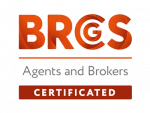IQF Herbs: Smarter, Cleaner, Faster for Food Manufacturers

Recent Posts
Categories
IQF herbs are changing the way food manufacturers work.
They save time, cut waste, and offer consistent flavour across every batch. Whether you're scaling a ready meal range, reformulating for clean label, or managing volatile raw input costs, frozen herbs could make your process smoother.
In this article, we explain how IQF herbs are made, how food professionals are using them, and what's next.
What Are IQF Herbs?
IQF stands for Individually Quick Frozen; herbs that are frozen shortly after harvest to capture their peak flavour, colour and nutrients. Each leaf or piece freezes on its own, so they pour easily straight from the bag without clumping.
The process is simple but highly controlled. Herbs are harvested at full maturity, usually within hours of cutting, then washed to remove any soil or grit. Depending on the customer’s needs, they’re chopped, minced or left whole before being flash-frozen on fluidised or spiral beds. Once sealed in moisture-proof bags and stored below –18°C, they stay fresh and stable for months.
Because freezing happens so quickly, typically within six to ten hours of harvest, the herbs retain their natural oils and aromatic compounds. That’s what gives finished products their clean, authentic flavour, even after cooking or reheating.
A Steady Growth Market
According to research, the IQF herbs market is projected to grow at a 6.8% CAGR between 2025 and 2033. That might seem modest, but it's dependable growth in a sector that values stability and operational scalability.
Why demand is increasing:
- Prepared food is growing in popularity
- People are increasingly favouring natural over synthetic flavours
- IQF gives sourcing predictability
- IQF herbs are delivered in labour-saving formats, reducing preparation time.
IQF Herbs in Food Manufacturing
IQF herbs are designed for real-world efficiency; combining convenience with consistency.
Ready meals: Pre-chopped IQF herbs cut kitchen prep while keeping flavour and colour intact. They handle freezing, reheating and microwave cycles without breaking down or dulling in colour.
Sauces and soups: In visible formats, IQF herbs bring both taste and texture. Basil in tomato sauce or dill in fish chowder keeps its character, adding freshness that holds through processing.
Bakery: From focaccia to savoury crackers, frozen herbs mix evenly and bake cleanly, with no browning or bitterness under high heat. IQF herbs are not only for savoury applications, they can also be used to enhance sweet flavours, for example, our team recently created a delicious strawberry and basil compote in a Victoria sponge recipe for our 130 year anniversary.
Marinated proteins: Whether in wet or dry systems, IQF herbs distribute evenly, delivering consistent flavour coverage, even on automated lines.
Foodservice prep: Large-scale kitchens rely on speed and accuracy. IQF herbs go straight from freezer to portion, cutting labour and improving serving consistency.
A Useful Tool for Developers
For R&D and NPD teams, ingredients that take the friction out of development can be extremely helpful. IQF herbs do exactly that, helping teams move faster and with more confidence.
Their consistent structure and flavour mean fewer variables in trials and fewer surprises when scaling. A predictable, year-round supply makes sourcing simpler. Compared with fresh herbs, there’s less fluctuation in cost, quality or availability.
Developers can also work flexibly with format. Whole, chopped or mixed, the herbs adapt easily to different product types, from sauces to frozen meals.
Sustainability and Ingredient Longevity
Freezing stabilises herbs in the most natural way possible, locking in freshness without the need for additives. For manufacturers, that makes IQF herbs a smart choice in more ways than one.
They help cut food waste by lasting far longer than fresh herbs (typically 12 to 24 months in frozen storage) without losing quality. Because they need no sulphites, brining agents or anti-browning treatments, they also fit neatly into clean-label strategies.
There’s a transport advantage too. IQF herbs are frozen close to harvest, meaning fewer refrigerated miles and lower emissions along the supply chain. At the same time, only top-grade herbs are selected for freezing, which helps reduce agricultural waste before products even leave the field.
DEFRA’s Food Waste Reduction Roadmap points to the environmental gains of longer-lasting ingredients. In practice, every extra month of shelf life reduces spoilage, energy use and emissions. With IQF herbs, sustainability isn’t just a label claim, it’s built into the process.
More than Consistency: Technical Benefits
While ‘predictable’ and ‘consistent’ are often overused, there's more to IQF herb quality than just that:
- Their colour and aroma stays in tact
- Freezing preserves essential oils better than drying.
- They keep their textural integrity (No soggy stems or wilted leaves).
- They offer cross-batch stability, performing the same each time.
Cost Considerations of IQF Herbs
Fresh herbs may appear cheaper, but once you factor in prep time, waste and variable quality, the equation often shifts. IQF herbs often deliver stronger commercial value over time.
Labour is a key saving as there’s no washing, trimming or knife work involved. Portion control is precise; scoop or weigh exactly what’s needed, with no offcuts or spoilage to account for. That consistency extends to cost. IQF herbs aren’t affected by the same seasonal pricing spikes as fresh, so procurement teams can plan ahead with greater confidence.
Trusted Sourcing with Global Reach
Uren works across Europe, North Africa, and Asia to bring in herbs grown where they thrive.
Our sourcing model offers:
- Year-round continuity for high-demand herbs.
- Multiple options in case of regional supply disruptions.
- Microbiological controls aligned with BRC and GFSI standards.
- True-to-type flavour in herbs for ethnic and regional recipes.
Each frozen product is tracked from field to pack. This gives you total visibility on origin, handling, and grade.
Where IQF Herbs Are Headed
The IQF herb category is evolving fast. Manufacturers are looking beyond single ingredients towards ready-to-use pre-blends like garlic–parsley or rosemary–thyme, designed to speed up line production.
More niche varieties are also emerging, from tarragon and chervil to Asian greens, reflecting broader flavour trends. New formats like purees, crumbles and micro-cuts are making it easier to work herbs into sauces, dips and spreads.
Sustainability is another focus, with more suppliers moving to recyclable or compostable bulk packaging. And as brands look to reduce salt, IQF herbs offer a natural route, adding depth and complexity without sodium.
IQF Herb FAQs
- How long do IQF herbs last? Stored below -18°C, they maintain quality for 12–24 months.
- Can I use them without thawing? Yes, they're designed for direct use from frozen. Just measure and mix.
- How close is the flavour to fresh herbs? For many cooked applications, the taste difference is minimal.
- Do they contain additives or preservatives? No, the freezing process is the only preservation method.
- Are organic IQF herbs available? Yes, subject to seasonal availability and pre-agreed formats.
Final Thoughts
IQF herbs offer practical advantages. They simplify sourcing, support formulation goals, and help reduce waste.
At Uren, we supply a wide range of IQF herbs to meet the needs of volume producers, co-packers, and brands. If you're exploring new products or want to remove seasonal risk from your supply chain, talk to us.










